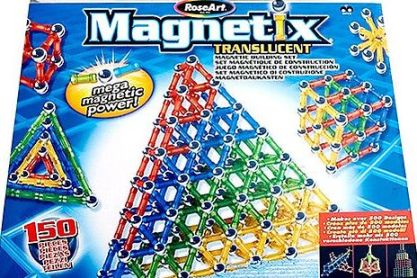Western District Dismisses Toy Maker's False Advertising Claim

The end has come for the false advertising dispute between competing makers of magnetic toy construction sets.
On Dec. 5, Western District Judge James Robart granted summary judgment in favor of the defendant, dismissing the remaining claim in PlastWood SRL v. Rose Art Industries, Inc.
STL readers may recall that PlastWood brought suit over Rose Art’s MAGNETIX construction sets. One claim was that Rose Art’s use of the phrase “Ages 3 to 100” on its packaging misrepresented that its pieces are safe even for small children. In November 2007, the court dismissed the claim on the ground it was preempted by safety rules set by the Consumer Product Safety Commission.
The remaining claim stemmed from Rose Art’s statement that its pieces can form “500 designs.” PlastWood alleged the claim constituted false advertising because many of the structures collapsed under their own weight.
In discovery, PlastWood identified only three structures that could not be built as advertised: the “airplane,” the “building,” and the “sphere.” In response, Rose Art hired an expert “builder of construction toys” who constructed all three structures on videotape using only the parts included in Rose Art’s toy sets and without using any glue or other adhesive. The court found this was enough to defeat PlastWood’s claim.
“PlastWood has not conducted any studies to determine whether any consumers were actually deceived by Rose Art’s allegedly false advertising. At oral argument, PlastWood confirmed that it is not pursuing a false advertising claim based on misleading advertisement but that it had limited its theory for liability to a claim of literal falsity. PlastWood therefore correctly contents that if the statement at issue — i.e., whether the structures can be built as advertised — is literally false, the court must assume that it actually mislead and confused consumers, without requiring any evidence of such deception from PlastWood. While PlastWood’s contention is correct, as discussed below, it does not have any evidence that Rose Art’s advertisement is literally false and cannot therefore rely on these cases in arguing that it need not show actual deception.”
The court added that PlastWood failed to establish a genuine issue of material fact in support of its assertions that the three structures could not be built.
“In the face of video evidence that each structure can be built, PlastWood now contends that Rose Art’s expert modified the structures while building them and that they are not identical to those depicted on the Magnetix toy box. The court has reviewed the videos provided by both parties and compared those to the structures depicted on the Magnetix packaging and finds that there are no discernible differences. More importantly, the court finds that no reasonable jury could conclude that the structures on the Magnetix box cannot be built as represented on the box.”
The case cite is PlastWood SRL v. Rose Art Industries, Inc., No. 07-458 (W.D. Wash. Dec. 5, 2008) (Robart, J.).
References (2)
-
 Response: LIfeguard training near meAmerican Lifeguard usa
Response: LIfeguard training near meAmerican Lifeguard usa -
 Response: Lifeguard classAmerican Lifeguard Association
Response: Lifeguard classAmerican Lifeguard Association
Reader Comments (1)